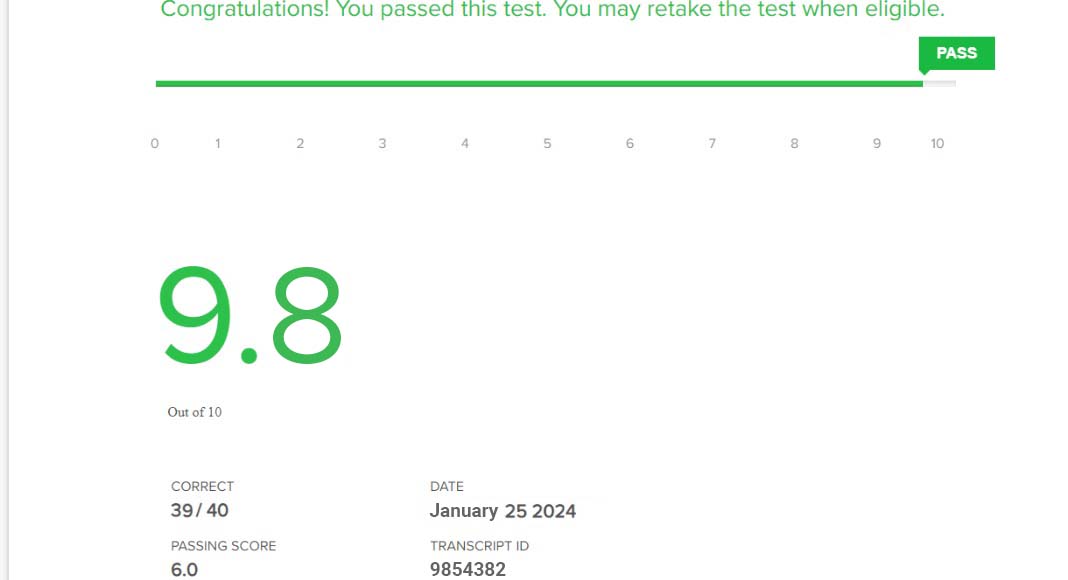The Law School Admissions Test (LSAT) is one of the most notorious exams around today, and most individuals that want to attend law school will need to take this test as part of the admissions process. Because the LSAT tends to be difficult and contains concepts that many people aren’t familiar with, it often takes a few months of studying before individuals are ready to tackle this test and achieve the best score possible. Our preparation guide will help you understand more about the LSAT, why studying for this test is important, and provide tips on acing your LSAT studies.
The Importance of the LSAT
The LSAT is the most common test used for determining the eligibility of candidates to law schools across the United States, and the higher your score on the LSAT, the more chances you have at admission or merit scholarships. Law schools that tend to be more notable or have higher rankings generally have higher average LSAT scores for accepted students, which means that meeting or succeeding past this average score improves your chances of admission, especially when combined with a stellar GPA and well-rounded application.
Because your LSAT score is so important to the law school admission process, it’s essential that you take your time studying and preparing for this exam so that you can receive the best score possible.
Do I Need a Study Schedule for the LSAT?
While you don’t need a study schedule and are free to prepare for the LSAT how you wish, a study schedule is often vital to keeping you on track with your studies and making sure that you learn everything you need to succeed on this exam. Without a study schedule, you may find that it’s hard to keep track of what you have learned, what you need to learn, and what your strengths and weaknesses are; this puts you at a disadvantage and might leave you disorganized in the days leading up to the LSAT.
So while you don’t need a rigid study schedule if that’s not your style, it helps to understand where you need to improve and what your LSAT strengths are so you can direct your studies in the right direction and properly prepare before your LSAT test date.
Your Three Month LSAT Study Schedule
In general, around three months of studying is recommended for most students wishing to take the LSAT. This breaks down to about 150 to 300 hours, with a student studying for around 20 to 5 hours per week. How long you need to study and how many hours per week you study will vary based on your LSAT preparation needs.
Below, we give general benchmarks you should try and work towards for each month of your LSAT study schedule. Make sure that you tailor these suggestions to your specific situation and take into account any personal factors such as family obligations or jobs.
Month One
To start your LSAT preparations, you should begin by taking a full-length LSAT practice test. It’s ok to receive a lower score on this, as your practice test will show you what your strengths are and where you might need to focus extra to improve. Carefully review the answers to your practice test, make note of the concepts you need to work on, and consult LSAT preparation sources such as online courses and books to get started.
You should also work out which days you can study, crafting your LSAT study schedule around any family or job obligations. A consistent study schedule is important if you want to make significant improvements in your score, and you should aim to study between two and four days a week.
Month Two
Once you have reached your second month of studying, take another LSAT practice test and reevaluate your strengths and weaknesses. This is the point where you might need to get more in-depth into certain concepts or step-up your study schedule by hiring an LSAT tutor. You should be getting more familiar with LSAT concepts and questions at this point, and you should always review your answers to LSAT practice tests to see what you got wrong and what you got right; understanding your thinking behind both is the key to selecting the correct answers in the future.
Month Three
By the third month of your study plan, you should be taking at least one full-length LSAT practice test a week. This will help you get a sense of how much time you have to answer questions and prepare you for your LSAT test date. You may need to complete some extra studying on concepts that you are still struggling with, but for the most part, your third month should be drilling LSAT exams and working to improve your LSAT weaknesses.
Tips for Acing Your LSAT Studies
The following tips help you craft a realistic study schedule and ensure that you ace your LSAT study period.
- Take into account any family, job, or other obligations that you need to complete when creating your schedule – craft your study schedule around these things so you know you will have dedicated, consistent studying time.
- Pay attention to LSAT registration deadlines and any application deadlines for law schools before creating your study schedule to ensure you have enough time to achieve the score you want before admissions deadlines arrive.
- If you suspect you will want to retake the LSAT, make sure to build time in for this in your study schedule.
- Be consistent with your studying and only commit to what you can handle – don’t craft an unrealistic schedule where you complete ten hours of studying in one day unless you know this is possible for you. An unrealistic schedule is likely to lead to difficulty studying and trouble keeping on track with your LSAT score goals.
Should I Hire an LSAT Tutor?
Hiring an LSAT tutor is a personal choice, but many people can benefit from the personal guidance and instruction that an LSAT tutor provides. By helping you identify your LSAT weaknesses and strengths and providing you with instruction that is targeted toward your studying needs, an LSAT tutor can help you greatly improve your score and understand concepts that you were previously struggling with. Some individuals may need a tutor for their entire studying process, while others may only need help near the end of their studying process as their score plateaus. Whatever your studying needs are, an LSAT tutor will most likely be able to help you.
Make the Most of Your LSAT Study Schedule
Studying for the LSAT is difficult, and many individuals might find this task overwhelming as they start to create an LSAT study schedule and determine how much work they need to achieve their target score. However, when you follow our tips for acing your LSAT studies and work toward certain benchmarks with your LSAT score, you are sure to make the most of your LSAT preparation time.
Don’t hesitate to contact an LSAT tutor for more assistance if you find yourself needing help improving your LSAT score.















































